Feeling overwhelmed, anxious, or not quite like yourself lately? You're not alone in this experience. Mental health affects how you think, feel, and handle daily life situations. If your feelings get too heavy or stick around too long, you may need to pay attention to them.
Understanding Common Struggles
Many people struggle with their emotional wellness at different points in their lives. Stress from work, relationship issues, or feeling lost in yourself are common. You're not alone in facing these challenges. The good news is that knowing what's happening helps. Finding support can make a big difference.
Seeking Help Shows Strength
In this guide, we'll cover mental health problems, how to spot warning signs, and how to start feeling better.
What Are Mental Health Issues?
Understanding Mental Health Like Physical Health
Mental health issues are conditions that affect how you think, feel, and behave in your daily life. Some days you feel great. Other days, you may need extra care and attention.
Recognizing When Life Feels Harder
You know those days when everything feels harder than usual? When getting out of bed feels like climbing a mountain, or when your mind won't stop racing with worries? These could be signs that your mental wellness needs some support. It's different from just having a bad day or feeling stressed about a big test or work deadline.
When Emotional Distress Persists
People often experience emotional distress when life feels out of balance. You might feel sad for weeks. You could worry all the time about things that may never happen. You may also feel distant from friends and activities you once enjoyed. Psychological health issues can impact anyone. It doesn't matter your age, background, or how perfect your life looks on the outside.
Mental Health as Medical Issues
Mental health problems are real medical issues, just like diabetes or a broken bone. Your brain is an organ that can need medical help. There's no shame in asking for it when you do. Many adults face mental wellness challenges at some point in their lives. With the right support, most can improve significantly.
Common Types of Mental Health Issues
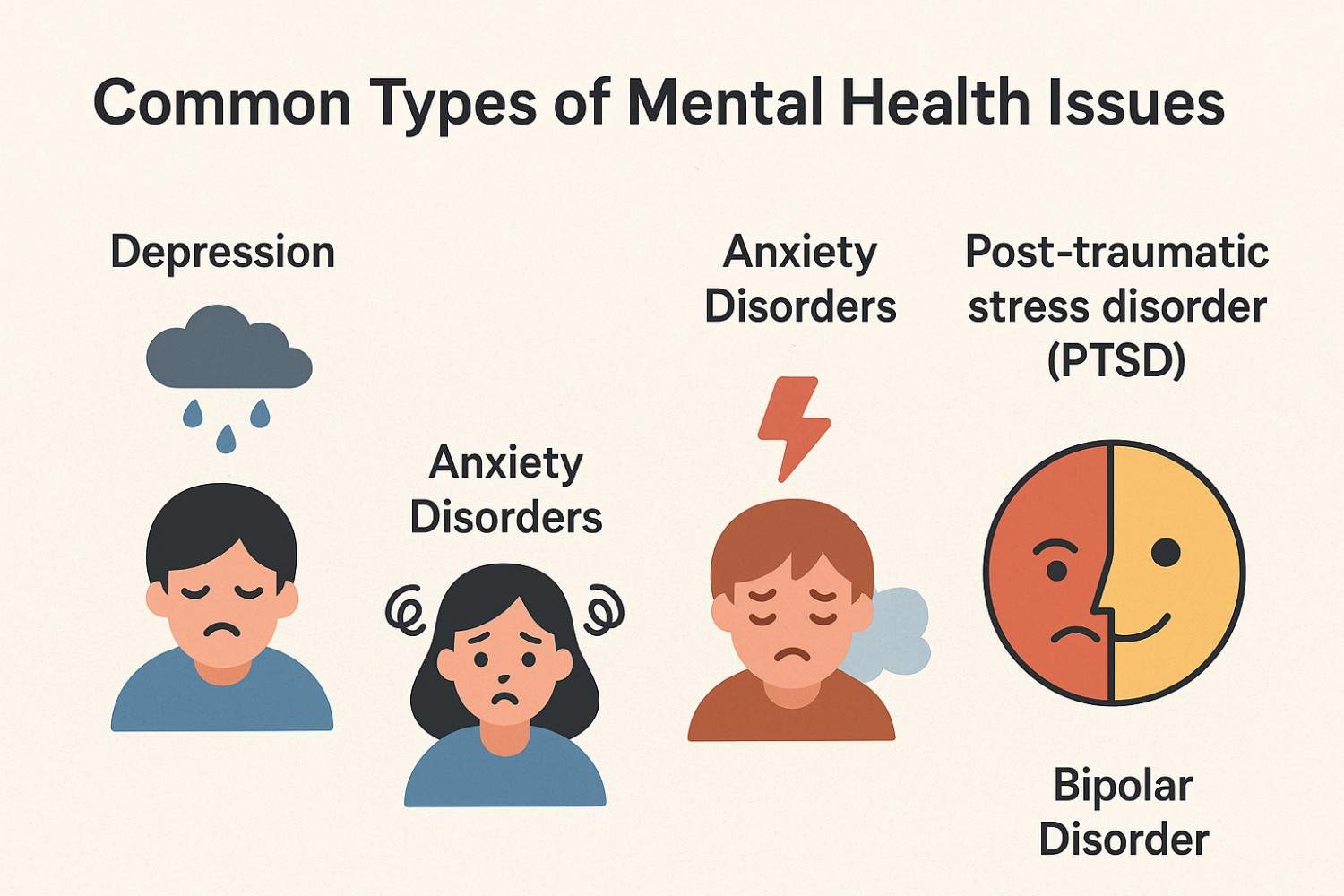
Understanding Different Mental Health Conditions
Many people face various mental health issues. Each type impacts individuals differently. Learning about common mental health disorders can help you understand what you or someone you know might be experiencing.
Depression: More Than Just Sadness
Depression is one of the most widespread psychological health concerns. People with depression often feel sad, empty, or hopeless for weeks or even months. They may stop enjoying activities they used to love. They might have trouble sleeping or feel tired, even after resting. Depression affects millions of adults and can make everyday tasks feel impossible.
Anxiety Disorders: When Worry Takes Control
Anxiety disorders cause people to feel excessive worry or fear about everyday situations. This isn't just regular nervousness before a big event. It's anxiety that disrupts daily life. A person with anxiety may experience panic attacks. They might avoid social events or worry a lot about things going wrong.
PTSD: Dealing with Trauma
Post-traumatic stress disorder (PTSD) can develop after experiencing or witnessing a traumatic event. People with PTSD might have flashbacks, nightmares, or feel constantly on edge. They often avoid places or situations that remind them of the trauma.
Bipolar Disorder: Managing Extreme Mood Changes
Bipolar disorder leads to severe mood changes. People with this condition feel deep depression and have bursts of high energy, called mania. During manic episodes, people may feel invincible. They often need little sleep and tend to make impulsive choices.
Social Anxiety and Seasonal Depression
Social anxiety impacts how people connect with others. It creates a strong fear of being judged or embarrassed in social settings. Seasonal depression often happens in the darker months with less sunlight. This can really affect your mood and energy levels.
Signs and Symptoms to Watch For
How Mental Health Issues Develop
You may notice changes in how you feel, think, or act as mental health issues start to develop. Mental health red flags often begin small. But if ignored, they can grow stronger over time.
Physical Warning Signs
Physical symptoms are often the first warning signs people notice. You may have headaches, stomach issues, or feel tired all the time, even with enough sleep. Some people notice changes in their appetite – either eating much more or much less than usual. Sleep problems are also common, including trouble falling asleep, staying asleep, or sleeping too much.
Emotional Red Flags
Emotional distress signs can include feeling sad, empty, or hopeless most days. You may feel angry or frustrated more often now. You might also find yourself anxious or worried about things that used to not bother you. Some people feel numb or disconnected from their emotions. It's as if they're just going through life without truly being present.
Behavioral Changes to Notice
Behavioral changes often affect your daily routines and relationships. You might start avoiding friends, family, or activities you used to enjoy. Some people struggle to focus at work or school. They may start using alcohol or other substances to handle tough emotions. Changes in personal hygiene or taking care of yourself can also be warning signs.
Changes in Thinking Patterns
You may notice changes in how you think. You might find it hard to make decisions, remember things, or focus on tasks. Negative thoughts about yourself or your future may come more often. They can be tough to shake off.
Why Mental Health Matters
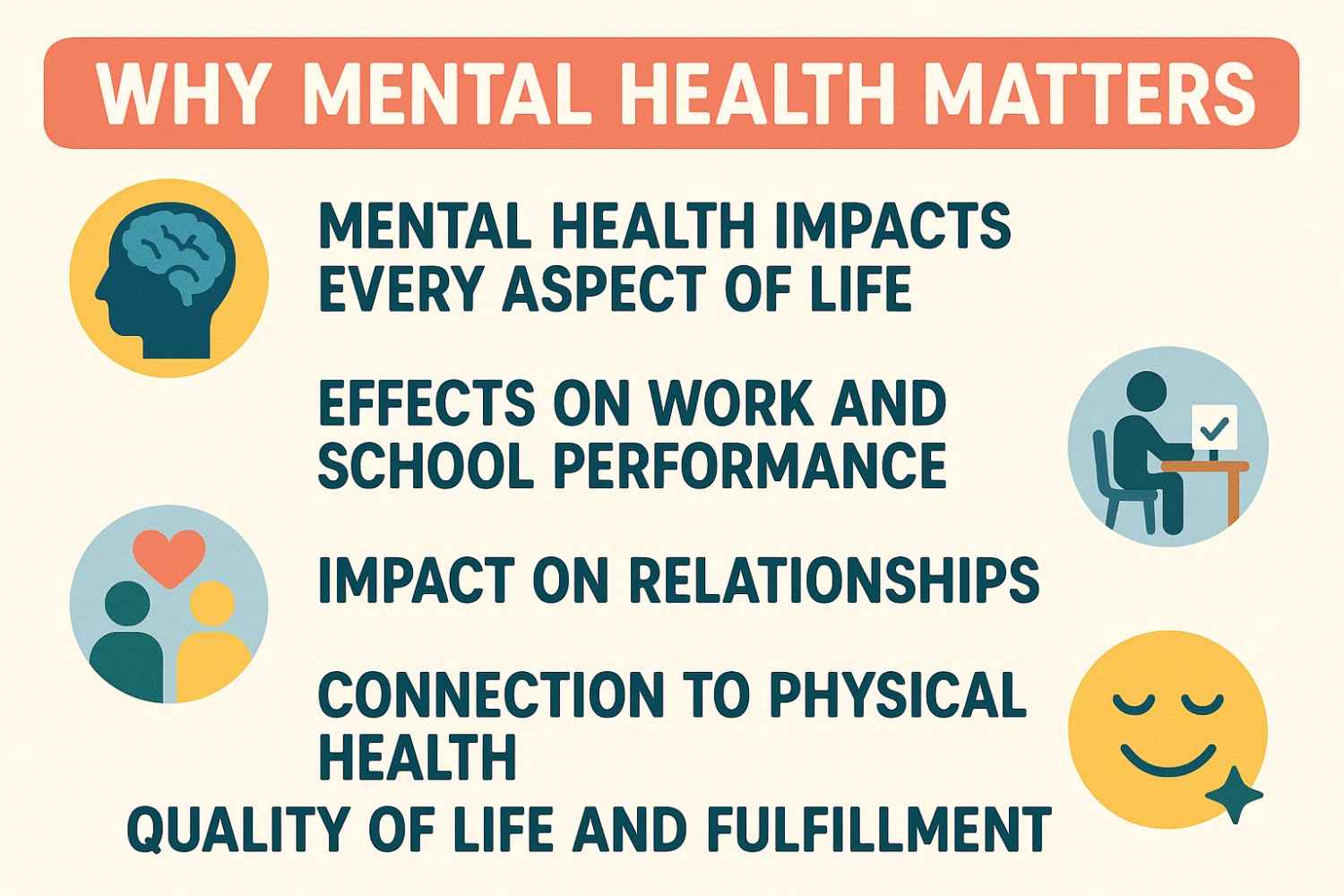
Mental Health Impacts Every Aspect of Life
Your mental health impacts every part of your life. It influences your relationships, work, physical health, and overall happiness. Struggling with emotional wellness is like driving a car with flat tires. It makes everything much harder.
Effects on Work and School Performance
Mental health issues at work or school can hinder focus, memory, and task completion. You may start calling in sick more often. You might miss deadlines, too. Responsibilities that once felt easy can start to feel overwhelming. This can create additional stress and worry about your performance and future.
Impact on Relationships
Psychological health issues can hurt your relationships with family, friends, and partners. You may feel cranky and snap at loved ones, or you might pull back and skip social events. Isolation can worsen mental health problems. This can create a cycle that's tough to escape without help.
Connection to Physical Health
Physical health is closely connected to mental wellness. Chronic stress and anxiety can weaken your immune system, making you more likely to get sick. You might experience headaches, digestive problems, or muscle tension. Some people may have sleep problems or changes in appetite. These issues can impact their health.
Quality of Life and Fulfillment
Your ability to enjoy life and feel fulfilled is why mental health matters. When you struggle, activities that once brought joy may feel empty. You deserve to feel happy, connected, and hopeful about your future. Taking care of your mental health isn't selfish; it's essential for a full and satisfying life.
How to Get Help and Support
Finding Help That Works for You
You can find help in many ways. The right choice depends on your situation and comfort level. The most important step is reaching out, even if it feels scary.
Starting with Your Support Network
Start with people you trust. Friends and family can offer emotional support and help you feel less alone. You don't need to share every detail, but telling someone you're struggling can be a relief. Having someone listen without trying to fix everything can make a big difference.
Professional Mental Health Services
You can find mental health support from counselors, therapists, and doctors who specialize in this field. Your family doctor is a good place to start. They can see if your symptoms are due to physical health problems. If needed, they can refer you to specialists. Many therapists offer talk therapy and techniques to manage anxiety and depression.
Crisis Support and Emergency Help
If you think about hurting yourself or someone else, help is available anytime. You can call national helplines for crisis support 24/7. Trained counselors can help you right away and connect you to local resources. Many communities also have mental health crisis centers for urgent care.
Online Resources and Digital Support
Online mental health resources are increasingly helpful, especially for people who struggle to access traditional therapy. Some apps and websites offer guided meditation, mood tracking, and virtual therapy sessions. Support groups, whether in-person or online, help you connect with others who understand your struggles. They've faced similar issues too.
Self-Help Tips That Actually Work
Building Daily Mental Wellness Habits
Try adding simple daily habits to boost your mental wellness. These strategies won't take the place of professional help, but they can help manage stress and boost your emotional health.
Sleep: The Foundation of Mental Health
Getting enough quality sleep is one of the most important things you can do for your mental health. Try to go to bed and wake up at the same time each day, even on weekends.
To create a calming bedtime routine:
- Avoid screens for an hour before sleep.
- Keep your bedroom cool and dark.
- Read a book or do gentle stretches.
Exercise as Natural Medicine
Regular physical activity works like medicine for your brain. You don't have to run marathons. A simple 10-minute walk in your neighborhood can lower anxiety and boost your mood. Exercise releases chemicals in your brain. These help you feel better. It can be especially useful for managing depression symptoms.
Journaling and Gratitude Practices
Journaling helps many people process their thoughts and feelings. Write down three things you're thankful for each day. You can also describe your feelings without judging them. This practice can help you identify patterns and triggers in your mental health.
Mindfulness and Breathing Techniques
Mindfulness and deep breathing can soothe your nervous system when you're stressed. Try the 4-7-8 breathing technique: breathe in for four counts, hold for 7, then breathe out for 8. This simple practice can help during moments of intense anxiety or stress.
Lifestyle Changes That Support Wellness
Cutting back on alcohol and caffeine can help a lot. Both can increase anxiety and disrupt sleep.
Supporting Someone You Care About
How to Help a Loved One with Mental Health Struggles
When someone you love struggles with mental health, you want to help. But you may not know how to show your support. Your care and concern can make a tremendous difference in their recovery journey.
The Art of Listening Without Fixing
Listen without trying to fix everything. People with mental health issues often need someone to hear them without judgment. They may not want solutions. Avoid saying things like "just think positive" or "others have it worse." These comments, though well-intentioned, can make them feel misunderstood or guilty.
Educating Yourself About Mental Health
Learn about mental health conditions. This will help you understand what your loved one is going through. Read about depression, anxiety disorders, and other issues. Recognizing that their symptoms aren't a choice or a character flaw is important.
Encouraging Professional Help
Encourage professional help gently. Offer practical support to find resources. You can help research therapists, drive them to appointments, or assist with calling their insurance. Don't take it personally if they aren't ready for help. Recovery takes time and varies for everyone.
Maintaining Your Own Mental Health
Take care of your own mental wellness, too. Supporting someone with mental health issues can drain you emotionally. You can't pour from an empty cup. Make sure you're getting the support, rest, and self-care you need.
Practicing Patience During Recovery
Be patient with the process. Mental health recovery isn't linear. There will be good days and bad days. Keep showing up with love and support, even when progress feels slow.
Final Thoughts
You're Not Alone in This Journey
You're not alone in facing mental health challenges. Struggling doesn't mean you're weak. Mental health problems are common and affect people from all walks of life. There's no shame in needing support.
Seeking Help Shows Strength
Seeking help shows strength and self-awareness. Just as you wouldn't ignore a broken bone, your emotional health needs care too. Today, tools and professional support are better than ever.
Every Step Forward Matters
Your journey to better mental health might be slow and tough, but it's worth it. Small steps matter. Whether it's talking to a friend, trying a new coping method, or seeing a counselor, every positive action counts.
Hope for the Future
You deserve happiness, peace, and connection with what matters in your life. Your mental health struggles don't define you or control your future. With support, most people can manage their symptoms and lead fulfilling lives.
Taking It One Day at a Time
Hold onto hope, even on tough days. Better days are coming, and help is available. You matter. Your feelings are valid, and your life has value. Take it one day at a time, and be gentle with yourself as you heal.

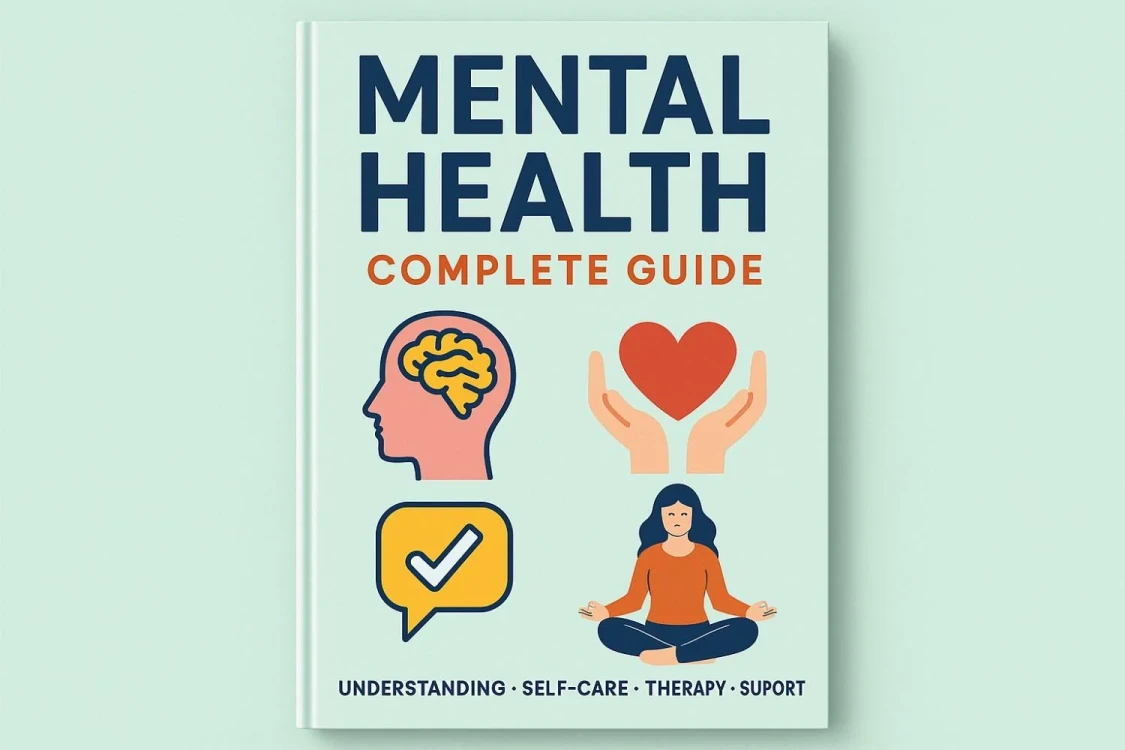
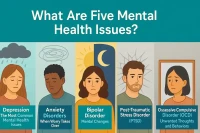
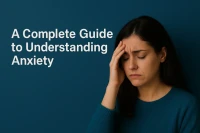
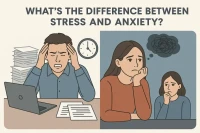
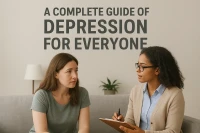
Comments